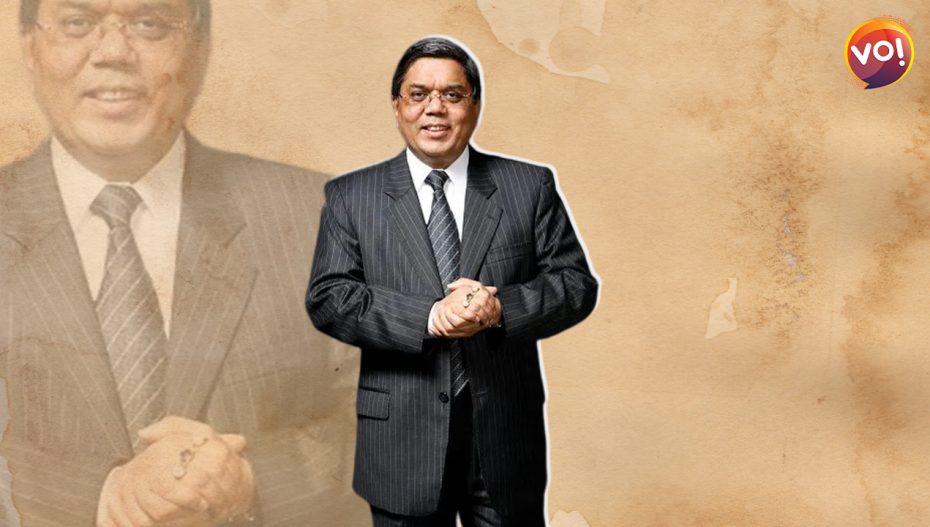“I was ahead by 27 years; my time has come now.” Tulsi Tanti, the founder-chairman of Suzlon Energy, spoke these words a few hours before succumbing to a cardiac arrest at 64.
The pioneer of windmill energy in India and one of the global figures in the sector spent a day in Ahmedabad on September 30, updating the shareholders, investors and the media about Suzlon Energy’s Rs 1,200-crore equity rights issue. He was on his way home to Pune from the airport when he suffered a heart attack.
Tragically, he left the world when the company was scheduled to open the company’s rights issue on October 11 to repay Rs 900 crore from the proceeds to ease out cash flows.
For the unversed, Suzlon Energy accounts for a third of India’s total wind energy capacity of around 40 gigawatts (GW). At its peak in 2008, Suzlon Energy’s market capitalisation was Rs 68,067 crore. Now, it stands at Rs 8,536 crore.
Tanti wasn’t just a zealous entrepreneur. He had an infectiously charming presence. For an entrepreneur of his stature, he had a light-hearted attitude, ever wearing his success gracefully. Tanti had an interesting interpretation of the word, Suzlon. Humouring the Gujarati businessman’s English, or perhaps the lack of it, he would say ‘Suz’ meant a deep sense of a subject, while ‘Lon’, in Gujarati twang, referred to loans.
Metaphorically, it was his eloquence in the global language of business that made him a towering figure. When Suzlon acquired Hansen Transmission International of Belgium, one of the negotiators said, “He doesn’t speak their language but he speaks business.”
Truly, he had the vision to scale global heights. He was one of the first movers of renewable energy 25 years back. He took wind energy by storm, no pun intended.
A student of commerce and mechanical engineering who belonged to a small-time business family in Rajkot, Tanti established a textile unit – Sulzer Synthetics – in Surat in 1987. He had set up wind energy units for his own business and, encouraged by the success, he ventured into the wind energy sector.
In 2005, the government announced tax breaks for the wind energy sector. Tanti bid for the Rs 1,500 crore IPO which was oversubscribed 15 times, bringing him to the eighth spot on Forbes’ list of richest Indians in 2005. During the next decade, Suzlon emerged as one of the top five wind turbine makers globally.
Things started to go a bit awry the moment Suzlon’s subsidiary AE-Rotor Holding BV acquired Germany’s REpower Systems. Though Suzlon had the management control of REpower, German laws did not allow Suzlon to use the company’s technology. Nor could Tanti have access to the cash reserves of the German subsidiary.
Matters came to a head when they were paying the debt raised to finance the acquisition. They were forced to pay Rs 411 crore for the supply of replacements of faulty components to US customers.
Suzlon tried divesting Hansen Transmissions and raising funds to repay the debt. There was no respite as the government spent on renewable energy projects. Suzlon, meanwhile, defaulted on the repayment of $209 million worth of foreign currency convertible bonds in 2009.
Around 2013, the SBI-led consortium restructured Rs 9,500 crore of loans along with a fresh working capital loan of Rs 1,800 crores. Dilip Shanghvi of Sun Pharma also tried to bail the company out by acquiring a 23% stake in 2015.
Even as the problems piled up in the form of unfavourable policies of the government, rolling back of incentives, shrinking market share and intense competition, Suzlon defaulted on the repayment of bonds worth $172 million.
Meanwhile, the SBI-led consortium restructured Suzlon’s debt worth Rs 14,000 crore two years ago.
After repayment of the sustainable debt, Suzlon Energy had to pay the non-sustainable debt. After taking a 65% haircut, the group of banks consented to convert loans of Rs 8,200 crore to long-term optionally convertible debentures payable in 20 years with the condition that the promoters infuse equity.
There was a brief spark in June 2022 when a consortium of bankers sold Rs 4,100 crore of Suzlon loans to the Rural Electrification Corp (REC) and the Indian Renewable Energy Development Agency (IREDA).
Unfortunately, he breathed his last at an inopportune moment. He had been advocating the shelving of e-reverse bidding for wind-energy projects following complaints of unviable tariffs owing to unhealthy competition.
While the business community mourns the champion of the wind energy sector, it should celebrate the life of an industry pioneer, who pursued his vision against all odds.













